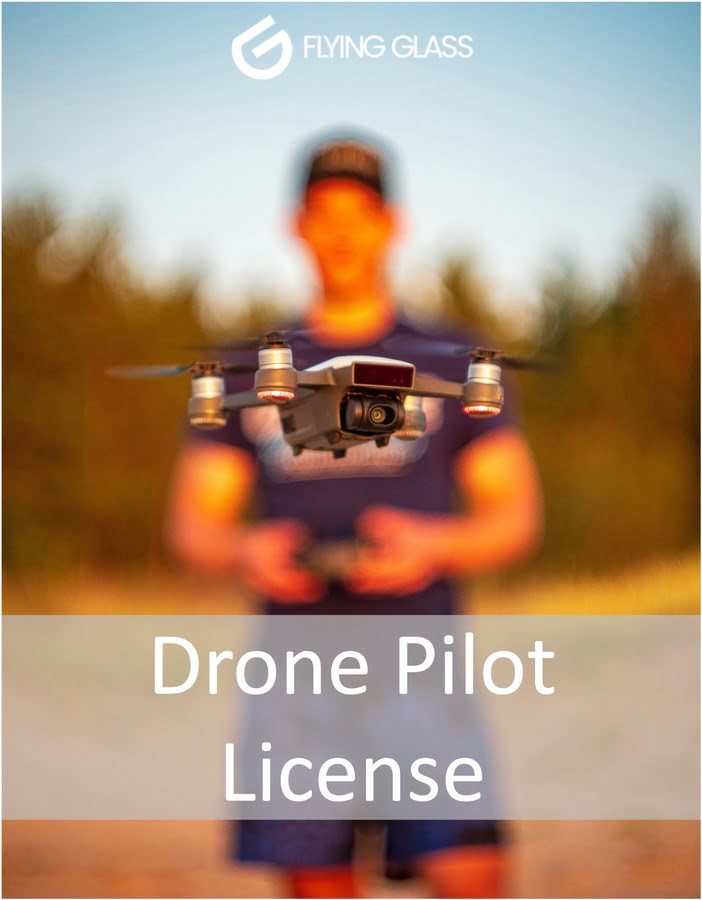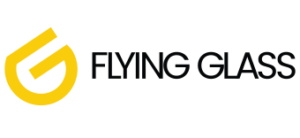Drone Pilot License: Frequently Asked Questions
The demand for drone operators in industries like film, real estate, and infrastructure has led to an increase in people seeking their drone pilot license. But what does it actually take to get licensed, and why is it so important for commercial drone operations? At Flying Glass, we help aspiring pilots get certified, offering comprehensive training programs and consultancy services for individuals and organisations.
In this FAQ post, we’ll answer some of the most common questions about obtaining a drone pilot license, covering everything from the legal requirements to career opportunities and advanced training options.

1. What Is a Drone Pilot License?
A drone pilot license, also known as a Remote Pilot Licence (RePL) in Australia, is an official certification that allows you to legally operate drones for commercial purposes. Issued by CASA (Civil Aviation Safety Authority), the RePL is required if you plan to fly drones weighing more than 2 kg for work purposes or if you’re being paid for your flights.
In simple terms, a drone pilot license ensures that you have the necessary skills, knowledge, and legal approval to operate drones safely and within the boundaries of Australian law.
2. Do I Need a Drone Pilot License to Fly Drones Recreationally?
No, a drone pilot license is only required for commercial operations. If you’re flying drones purely for fun and your drone weighs less than 2 kg, you don’t need a license. However, you still need to follow CASA’s safety rules for recreational flying, which include:
- Flying below 120 metres (400 feet)
- Keeping your drone within visual line of sight
- Staying 30 metres away from other people
- Avoiding flying near airports and emergency situations
These rules are in place to ensure the safety of both the public and other airspace users.
3. What Are the Benefits of Having a Drone Pilot License?
Getting your drone pilot license comes with several benefits, especially if you plan to turn your passion for drones into a career. Some key advantages include:
- Legal Compliance: Operate drones for commercial purposes legally without risking fines or penalties.
- Access to Larger Drones: You’ll be able to fly drones that weigh more than 2 kg, which are often required for professional-grade filming, photography, and surveying.
- Higher Earning Potential: Licensed drone operators can charge higher rates for their services, especially in high-demand industries like film, real estate, and infrastructure.
- Fly in Controlled Airspace: With CASA approvals, licensed operators can fly in controlled and restricted airspace, giving you access to prime locations for filming or other commercial purposes.
- Increased Job Opportunities: Many industries require certified pilots for drone operations, making a drone pilot license essential for landing jobs in TV, film, agriculture, and more.
4. What Is the Difference Between an RePL and an ReOC?
A Remote Pilot Licence (RePL) is an individual certification that allows you to fly drones for commercial purposes. It certifies that you have completed the necessary training and are qualified to operate a drone safely and legally in Australia.
A Remote Operator’s Certificate (ReOC) is required for businesses that want to operate drones commercially. The ReOC is issued to the company, and it allows the organisation to manage multiple drone operators and perform more complex operations. ReOC holders also need to appoint a chief pilot to oversee the safety and compliance of all drone operations.
Flying Glass offers consultancy services to help businesses obtain their ReOC and ensure their operations are compliant with CASA regulations. If you’re thinking about starting a drone business, obtaining an ReOC is essential.
5. What Training Is Required to Get a Drone Pilot License?
To get your drone pilot license, you’ll need to complete a CASA-approved training course. At Flying Glass, we offer comprehensive RePL training that covers both theoretical knowledge and practical flying skills. Our training includes:
- Aviation Knowledge: Learn about airspace classifications, weather conditions, and aviation regulations.
- Flight Safety: Understand the rules for safe drone operations and how to respond to emergencies.
- Practical Flying: Get hands-on experience operating drones, including take-offs, landings, and navigating through different environments.
- Risk Management: Learn how to identify and mitigate potential hazards during flight operations.
Once you’ve completed the course and passed the assessments, you’ll be issued your RePL, allowing you to operate drones commercially.
6. Can Flying Glass Help Organisations Get Licensed?
Yes! At Flying Glass, we specialise in helping organisations, including government bodies and councils, get their teams licensed. Our drone school offers bespoke training solutions that are tailored to the specific needs of your organisation. Whether you need training for infrastructure inspections, environmental monitoring, or media production, we can design a course that fits your objectives.
We also provide on-site training, so if your team can’t come to us, we’ll come to you. Our training is designed to ensure that your employees are fully prepared to operate drones safely and in compliance with CASA regulations.
7. What Jobs Can I Do With a Drone Pilot License?
A drone pilot license opens up a wide range of career opportunities across multiple industries. Here are just a few of the jobs you can do once you’re licensed:
- Aerial Cinematographer: Work on films, TV shows, commercials, and documentaries, capturing stunning aerial shots.
- Real Estate Photographer: Provide high-quality aerial footage of properties for real estate agents and developers.
- Agricultural Surveyor: Use drones to monitor crop health, map fields, and improve farm productivity.
- Infrastructure Inspector: Perform aerial inspections of bridges, roads, pipelines, and buildings, identifying issues that would be difficult to spot from the ground.
- Search and Rescue Operator: Assist emergency services in search and rescue missions, using drones to cover large areas quickly and efficiently.
The demand for licensed drone operators is growing, and with a certification, you can tap into these exciting and well-paying fields.
8. How Long Does It Take to Get a Drone Pilot License?
The time it takes to get a drone pilot license depends on the course provider and your schedule. At Flying Glass, our standard RePL course typically takes between 5 to 7 days to complete. This includes both the theoretical and practical components, as well as assessments.
For organisations or individuals with specific needs, we offer flexible training schedules to accommodate your availability. We can also provide accelerated courses for those who need to get licensed quickly.
9. Can I Operate Internationally With My Australian Drone Pilot License?
While the drone pilot license (RePL) issued by CASA is specific to Australia, it can help simplify the process of getting licensed in other countries. Different regions have their own regulations for drone operations, and if you plan to work internationally, you’ll need to meet the licensing requirements of the country in which you intend to operate.
In the USA, for example, commercial drone operators must obtain a Part 107 license from the Federal Aviation Administration (FAA), while in Europe, operators must comply with EASA regulations. At Flying Glass, we have experience in international operations and can provide guidance on how to get licensed in other countries if your work takes you abroad.
10. What Can’t You Do Without a Drone Pilot License?
If you don’t have a drone pilot license, you’re limited to flying drones for recreational purposes only. This means:
- You can’t fly drones over 2 kg for commercial purposes.
- You’re prohibited from flying in controlled airspace, such as near airports or in busy urban areas like Sydney’s CBD.
- You cannot charge clients or accept payment for your drone services.
- You can’t fly in populous areas, over people, or near emergency operations.
Without a license, you’re restricted to basic drone operations, which limits your ability to take on professional projects or work in more complex environments.
11. Does Flying Glass Offer Consultancy Services for Drone Operators?
Yes! In addition to providing drone pilot license training, Flying Glass offers consultancy services to help operators and organisations streamline their drone operations. This includes:
- Operations Manual Updates: We help you create or update your operations manual to ensure compliance with CASA’s regulations.
- ReOC Applications: If you’re a business looking to obtain a Remote Operator’s Certificate (ReOC), we can guide you through the application process.
- Advanced Endorsements: We offer additional training for night flying, controlled airspace operations, and beyond visual line of sight (BVLOS) operations.
Our consultancy services are designed to help you stay compliant, improve safety, and expand the scope of your drone operations.
12. How Can I Get Started With My Drone Pilot License?
Getting started on your journey to obtaining a drone pilot license is easy with Flying Glass. Simply contact us to discuss your needs, and we’ll guide you through the process of enrolling in our RePL course. Our team is here to help every step of the way, from providing training to offering consultancy services that ensure your operations are safe and compliant.
Conclusion: Take the First Step Towards Certification
Obtaining a drone pilot license is essential if you want to take your drone operations to the next level. Whether you’re aiming to work in film, real estate, agriculture, or another industry, a licence opens the door to a wide range of exciting opportunities.
At Flying Glass, we provide top-tier training and consultancy services to help you get licensed and operate safely and legally. Contact us today to learn more about our courses and how we can help you become a certified drone pilot.

